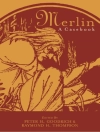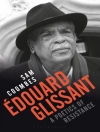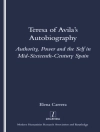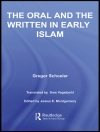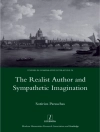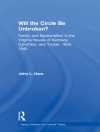This volume explores the multifarious representational strategies used by contemporary writers to textualise memory and its friction areas through literary practices. By focusing on contemporary narratives in English from 1990 to the present, the essays in the collection delve into both the treatment of memory in literature and the view of literature as a medium of memory, paying special attention to major controversies attending the representation and (re)construction of individual, cultural and collective memories in the literary narratives published during the last few decades. By analysing texts written by authors of such diverse origins as Great Britain, South-Korea, the USA, Cuba, Australia, India, as well as Native-American Indian and African-American writers, the contributors to the collection analyse a good range of memory frictions —in connection with melancholic mourning, immigration, diaspora, genocide, perpetrator guilt, dialogic witnessing, memorialisation practices, inherited traumatic memories, sexual abuse, prostitution, etc.— through the recourse to various disciplines —such as psychoanalysis, ethics, (bio)politics, space theories, postcolonial studies, narratology, gender studies—, resulting in a book that is expected to make a ground-breaking contribution to a field whose possibilities have yet to be fully explored.
Содержание
1. Introduction: Memory Frictions: Conflict-Negotiation-Politics in Contemporary Literature in English: María Jesús Martínez-Alfaro and Silvia Pellicer-Ortín.- 2. The Powers of Vulnerability: The Restorative Uses of Elegy: Jean-Michel Ganteau.- 3. Narrative Form, Memory Frictions and the Revelation of Traumatic Secrets in Toni Morrison’s Home: Susana Onega Jaén.- 4. The Zigzag Trajectory through Time of Colum Mc Cann’s Trans Atlantic: Sandra Singer.- 5. Public Art and Communal Space: The Politics of Commemoration in Amy Waldman’s The Submission: Paula Martín-Salván.- 6. A Korean ‘Apocryphal’ Island: Once the Shore, by Paul Yoon: Marc Amfreville.- 7. False Memories, False Foods: Eating, Cooking, Remembering in Tastes Like Cuba by Eduardo Machado: Nieves Pascual Soler.- 8. The Holocaust in the Eye of the Beholder: Memory in Carmel Bird’s The Bluebird Café (1990): Bárbara Arizti Martín.- 9. Lore, or the Implicated Witness: Rachel Seiffert’s Postmemory Work: Suzanne Baackman.- 10. ʽNo Redress but Memoryʼ: Holocaust Representation and Memorialisation in E.L. Doctorow’s City of God: María Ferrández San Miguel.- 11. Re-Mapping the Trauma Paradigm: The Politics of Native American Grief in Louise Erdrich’s “Shamengwa”: Silvia Martínez-Falquina.- 12. Wendy Law-Yone’s The Road to Wanting (2010): The Role of Place and the (Im)Possibility and (Un)Willingness of Remembering the Way Back Home: Dolores Herrero.- 13. Negotiating Traumatic Memories in Louise Erdrich’s The Round House: White Man’s Law vs. Native Justice and Tradition: Aitor Ibarrola-Armendariz.- 14. Conclusion: Robert Eaglestone.
Об авторе
Dr. María Jesús Martínez Alfaro is Senior Lecturer at the Department of English and German Philology of the University of Zaragoza. Her research focuses on contemporary narrative in English, more specifically on memory, ethics and trauma in relation to the novels of Martin Amis, A.S. Byatt, Charles Palliser, Jane Yolen, Cynthia Ozick and Rachel Seiffert, among others. She has widely published in journals such as Twentieth-Century Literature, Symbolism, Journal of Narrative Theory, EJES.
Dr. Silvia Pellicer-Ortín is Lecturer at the Department of English and German Philology in the Faculty of Education of the University of Zaragoza. Her main research interests are related to contemporary narrative in English, focusing on trauma and Holocaust studies, British-Jewish women writers, and feminism. She has delivered several papers and published articles on these topics in international forums such as Atlantis, CCS,
Critical Engagements and
Humanities. She recently published her monograph entitled
Eva Figes’ Writings: A Journey through Trauma (2015).


